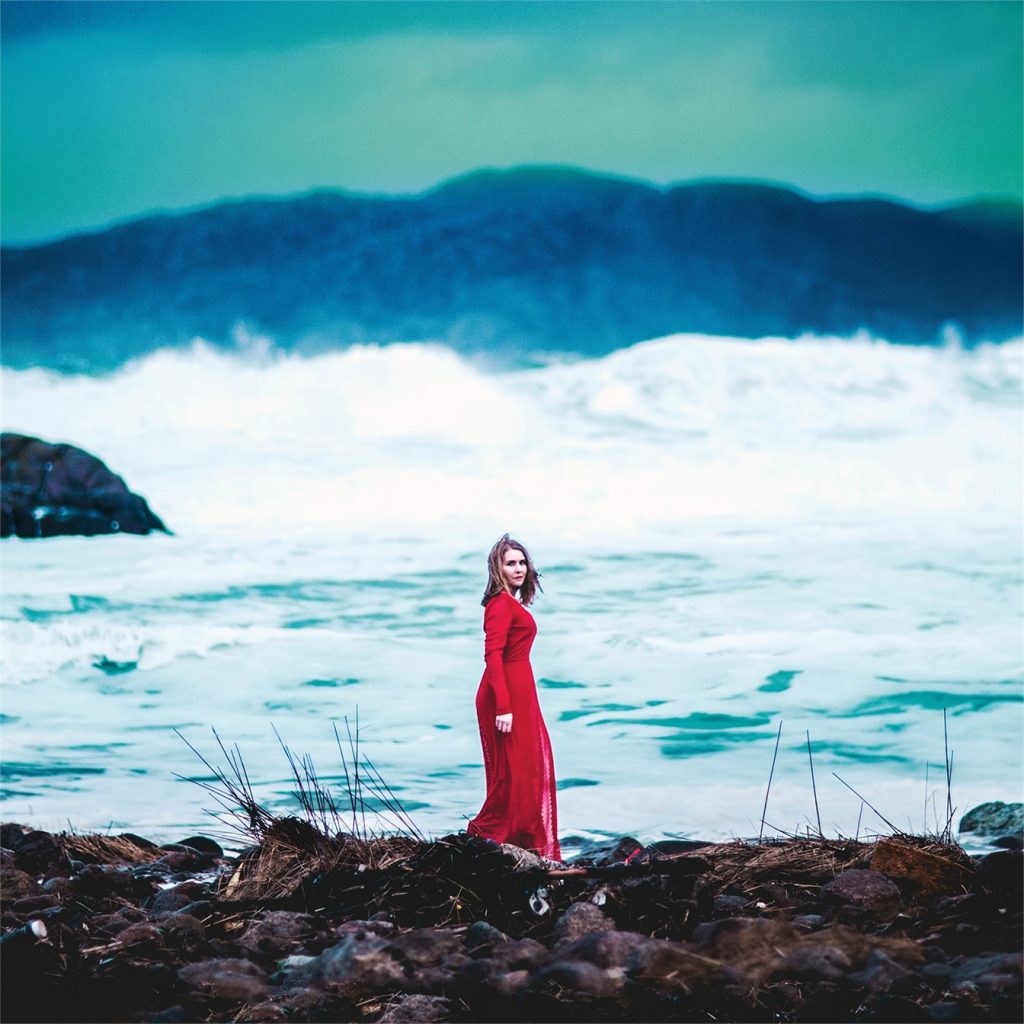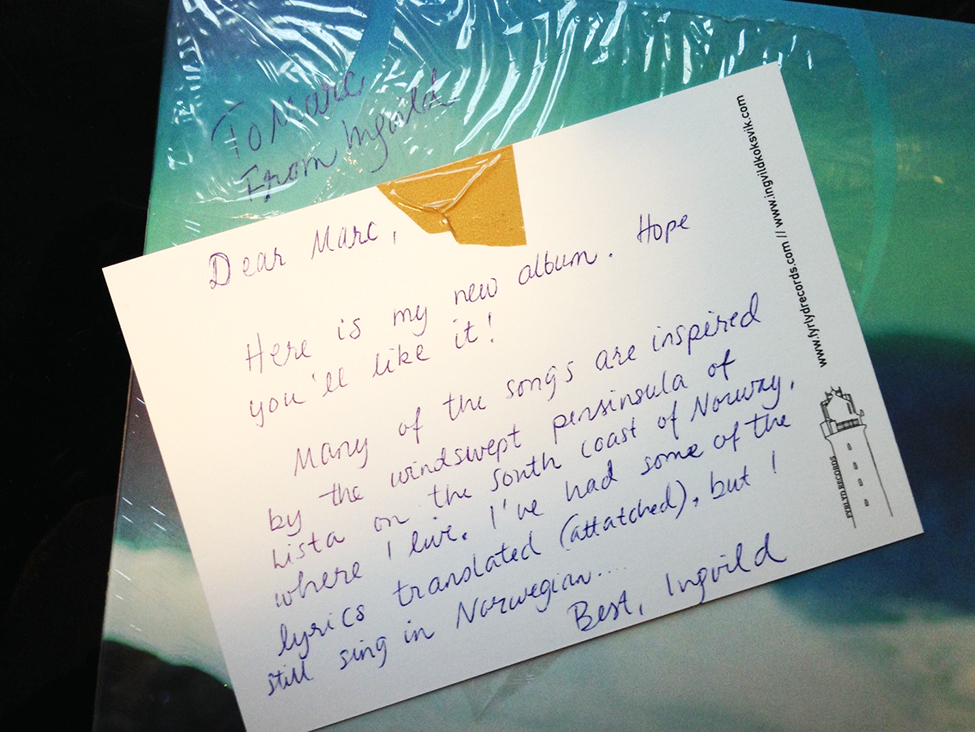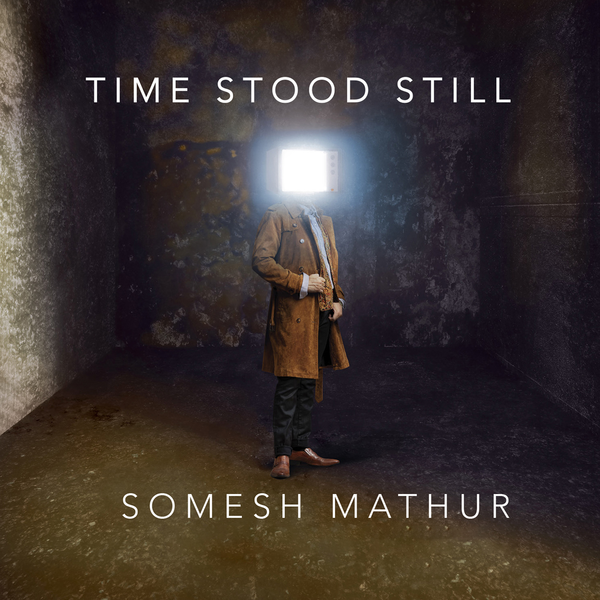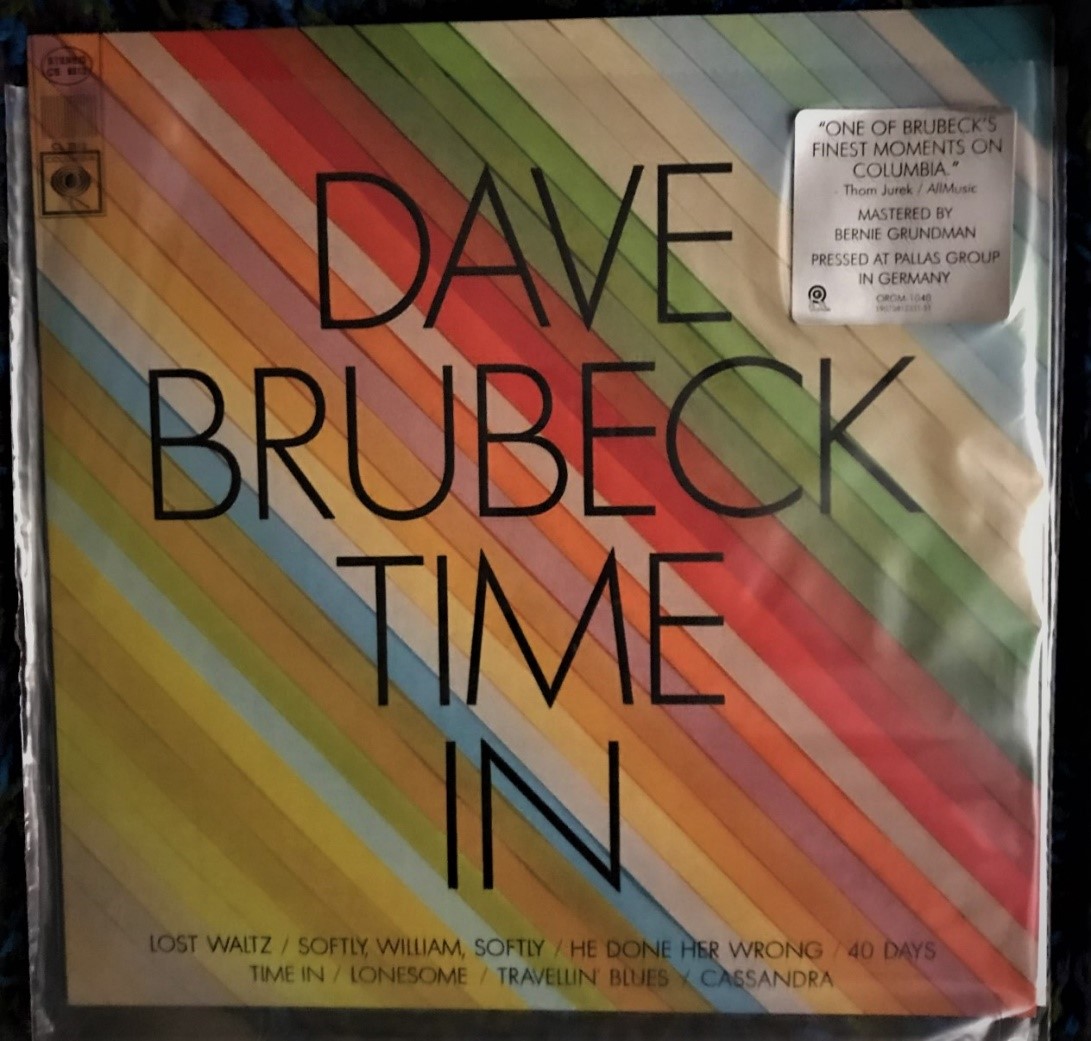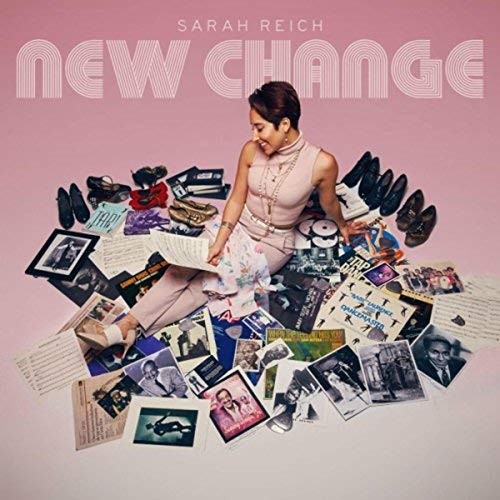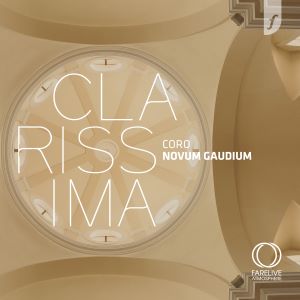I absolutely adore Ingvild Koksvik. A small part of that is because she's this beautiful and almost ethereal creature wandering through vast Norwegian landscapes and singing in this clear and goosebump-inducing voice that is sounds like it's from a dream, one of your favorite dreams, the kind that make you regret you eventually woke up—and she still has time to send me a wonderful postcard explaining her inspiration for her new album Og sangen kom fra havet. She even signed the cover of the album for me, and I didn't even have to beg her to do it.
I also adore her because, quite simply, she makes beautiful music that launches me into la-la land. In her lovely note she seems a tad apologetic that she still sings in Norwegian, but to me that's a plus. One of my favorite albums of all time is Cocteau Twins' Blue Bell Knoll, and the fact that Elisabeth Fraser doesn't sing actual words is part of its persuasive and unique charm. It's so beautiful that mere words would take it down a notch and remove its essential mystery. It's the same for Ingvild—she notes that she supplied the English translation to these eight beautiful songs, but I'm strangely hesitant to read them.
For the record, I also adore Lars Jakob Rudjord. A couple of years ago I reviewed Ingvild's last album, Nattapent, and I loved it. It was my favorite LP of the year, hands down. Then she sent me a note asking if I'd like to review her boyfriend Lars's new CD, an instrumental work with his ensemble entitled Clockwork. I wound up picking Clockwork as my #1 album of the year in 2014, and Nattapent #2. It wasn't that I actually preferred one over the other, it was just that I connected to them in different ways. Lars' album challenged me musically and broadened my horizons, while Ingvild's album was an arrow straight through the heart.
Plus, she earned extra points for releasing Nattapent on LP. It was a clean, nearly flawless pressing that sounded as impressive as anything I'd heard from Norway, even those landmark LP releases from 2L Recordings. On another day I might have swapped my choices around. I'm just glad she also released Og sangen kom fra havet – which translates to And the song came from the sea—on yet another spectacular LP pressing from Fyrlyd Records.
This is the album where Ingvild, after finding her voice on Nattapent, expands her proverbial artistic palette with a more ambitious and confident release. The arrangements are more expansive than on Nattapent, which was thoroughly intimate and spare and focused on her voice and Lars' piano along with a very subtle string accompaniment. Og sangen is far more complex. Lars, who is now Ingvild's husband, busily supplies piano, fender Rhodes, Wurlitzer, synthesizers, dulcimer, glockenspiel, clavinet, marxophone, thumb piano, omnichord, harmonium and even a Casiotone MT-100 to these songs, adding incredible depth and texture. Add to that Katrine's Schiott's lovely cello, Joel Hamilton's aptly soft percussion, Tony Maimone's judicious use of bass—even Marc Ribot supplies the guitar on three songs.
This sort of variety makes each song distinct and separate in its tone—this is hardly one of those singer-songwriter releases where consistency stops being a virtue before the end of the second side. While Ingvild still loves to project an awe-inspiring and windswept lushness to songs such as the quiet and reflective "Den stilleste dagen" and the romantic closer, "Mathilde," she can also tighten up her songs and add an almost pop-like punch to others such as "Noe bedre," which definitely takes me right back to Blue Bell Knoll and its gorgeous sense of the abstract, and the dramatic and deeply rhythmic "Hjemme na."
But the centerpiece of the album, of course, is Ingvild's voice. It is so fluid and melodious, with minimal vibrato that helps to create that clarity I already mentioned. There's such a purity of tone here, the way she pronounces words, injects them with emotion that makes each syllable round and full of texture and shading. I think that we, as music-loving audiophiles, expect the female voice to waver a bit in order to avoid sounding flat. Ingvild's voice is the antithesis of flat and will transform your perceptions and standards of vocal beauty.
That brings me back to the lyrics, which as I've mentioned have been translated into English for me by Ingvild. I know that when I read them, it will add another layer of meaning to this stunning album. In her postcard she told me that the songs are inspired by the windswept southern coast of Norway where she lives. The translation will add words to my brain and I will understand more. But there's a little voice in me that says I'd be better off learning Norwegian so that I can really understand what's driving this talented woman.
Until then, I'll just listen to Og sangen kom fra havet and revel in its beautiful, beautiful mystery.
[Photographs courtesy of the artist; processing by David W. Robinson.]




